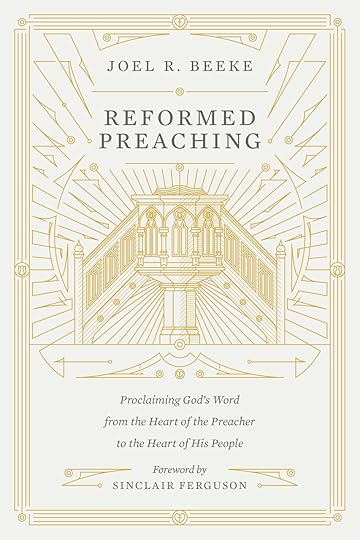Randy Alcorn's Blog, page 98
August 16, 2019
Five Ways God Can Use Your Stress for Great Good

A while back I shared some things I’ve written about how God uses stress in our lives with some guys I’ve been mentoring. It was timely for me both then and now, because I’m in a time of stress, and indeed God is using it!
1. God uses stress to get our attention. God created our bodies. He designed them to send us messages. If I stick my hand in fire, my body will send me a message, quick and clear. If I ignore it, I’ll pay the price.
C.S. Lewis said “pain is God’s megaphone.” Some of us are hard of hearing. We ignore physical, mental, and spiritual warning signs. We’re like the stubborn mule the farmer had to hit over the head with a two-by-four to get his attention. God wants us to tune our ears to the messages He sends us through our minds and bodies.
2. God uses stress to help us redefine or rediscover our priorities. By abandoning our God-given priorities we set ourselves up to learn a hard lesson. In essence we do what the Israelites did: lived in paneled houses while God’s house became a ruin (Haggai 1:4). In response, God sent lack of fulfillment, disillusionment, and failure as His messengers. He withheld His blessing till His people rediscovered their priorities:
Now this is what the Lord Almighty says: “Give careful thought to your ways. You have planted much, but have harvested little. You eat, but never have enough. You drink, but never have your fill. You put on clothes, but are not warm. You earn wages, only to put them in a purse with holes in it.”
This is what the Lord Almighty says: “Give careful thought to your ways. Go up into the mountains and bring down timber and build the house [of God], so that I may take pleasure in it and be honored,” says the Lord. “You expected much, but see, it turned out to be little. What you brought home, I blew away. Why?” declares the Lord Almighty. “Because of my house, which remains a ruin, while each of you is busy with his own house. Therefore, because of you the heavens have withheld their dew and the earth its crops. I called for a drought on the fields and the mountains, on the grain, the new wine, the oil and whatever the ground produces, on men and cattle, and on the labor of your hands” (Haggai 1:5-11).
God’s people are twice admonished “Give careful thought to your ways.” Stress should take us back to the basics. It is an opportunity to re-evaluate our priorities and bring them in line with God’s.
3. God uses stress to draw us to Himself. Time and again it was said of the people of Israel, “But in their distress they turned to the Lord, the God of Israel, and sought him, and he was found by them” (2 Chronicles 15:4). It was in Jonah’s darkest hour, in his most stressful circumstances that he said this: “In my distress I called to the Lord, and he answered me” (Jonah 2:2). The Psalms are full of references of turning to God, seeking Him and finding Him in times of intense stress.
In my distress I called to the Lord; I cried to my God for help. From his temple he heard my voice; my cry came before him, into his ears (Psalm 18:6).
In your distress you called and I rescued you, I answered you out of a thundercloud; I tested you at the waters of Meribah (Psalm 81:7).
I call on the Lord in my distress, and he answers me (Psalm 120:1).
When our lives are comfortable and stress-free, too often we withdraw from the Lord into our own worlds of spiritual independence and isolation. Smug and self-satisfied, we forget what life is really all about. But as the thirsty seek for water, those under stress often seek God. Many non-believers have come to Christ and many believers have returned to Him in times of stress.
4. God uses stress to discipline us. Quoting Solomon’s words to his son, the writer of Hebrews offers what he calls a word of encouragement:
“My son, do not make light of the Lord’s discipline,
and do not lose heart when he rebukes you,
because the Lord disciplines those he loves,
and he punishes everyone he accepts as a son.”
Endure hardship as discipline; God is treating you as sons (Hebrews 12:5-7).
(The word son, of course, is generic for “child,” and applies equally to daughters.)
To some of us, this doesn’t sound so encouraging. But we fail to realize how essential discipline is. Scripture says that to withhold discipline from a child is, in essence, child abuse: “He who spares the rod hates his son, but he who loves him is careful to discipline him” (Proverbs 13:24).
Discipline is corrective. It is remedial, not revengeful. God sends stresses not to get back at us for doing wrong, but to deepen our dependence on Him in order to do right. Though the stressful experience may seem excruciating at the time, it is ultimately all for good:
God disciplines us for our good, that we may share in his holiness. No discipline seems pleasant at the time, but painful. Later on, however, it produces a harvest of righteousness and peace for those who have been trained by it (Hebrews 12:10-11).
5. God uses stress to strengthen our faith. 1 Peter 1:7 tells us: “These [trials] have come so that your faith—of greater worth than gold, which perishes even though refined by fire—may be proved genuine and may result in praise, glory and honor when Jesus Christ is revealed.”
There is only one way a muscle grows—through stress. A muscle that is rarely exercised atrophies; it shrinks into uselessness. A muscle seldom stretched beyond its usual limits can only maintain itself. It cannot grow. To grow, a muscle must be taxed. Unusual demands must be placed upon it.
Stress is a demand placed upon our faith. Without it our faith will not, cannot, grow.
Ever seen grass grow through asphalt? It’s amazing if you think about it. How does grass, pressed flat and robbed of light, persevere? Yet we’ve seen it. Somehow God made those tiny blades of grass to rise to the greatest challenge. Nanci and I have seen many people rise against odds just as great.
In the crucible of stress, as we draw on our resources in Christ, He gives us faith and strength to crack through and rise above the asphalt coat. That hard demanding surface buries some forever, but is to others the defining point of breaking through and thriving by the grace of God.
For more, see Randy and Nanci’s book Help for Women Under Stress.
August 14, 2019
Costi Hinn on How Liberty from Prosperity Theology Isn’t a License to Kill; It’s an Opportunity to Be Light

Prosperity theology teaches that God will bless with material abundance and good health those who obey Him and lay claim to His promises. “We don’t have to wait for God’s blessing in the life to come,” this ideology claims. “He’ll send it to us here and now.”
I don’t want to be uncharitable, but I will be blunt: I believe that prosperity theology, with its practice of twisting some Scriptures while ignoring others, is straight from the pit of Hell. Centered on telling people they deserve whatever they want, this worldview treats God as a cosmic slot machine: insert a positive confession, pull the lever, catch the winnings.
In prosperity theology, “faith” becomes a crowbar to break down the door of God’s reluctance rather than a humble attempt to access His willingness. Sadly, claiming that God must take away an illness or a financial hardship often means calling on Him to remove the very things He has permitted and designed to make us more Christlike.
No matter how much we may appear to trust God and His promises, clinging to the American dream of health and wealth is idolatrous.
I wrote most of the above thirty years ago in my book Money, Possessions and Eternity, first published in 1989. At that time not many voices were speaking out against prosperity theology. I’m glad far more pastors and teachers are doing so today. One such voice is Costi Hinn, the nephew of faith healer Benny Hinn. I’ve followed his story over the last few years and recently shared about his new book God, Greed, and the (Prosperity) Gospel. Costi is right to point out that we should be careful to speak the truth boldly with grace, wisdom, and humility, and with the end goal of pointing people to the saving power of the true gospel. —Randy Alcorn
God, Thank You I’m Not Like Those Prosperity Preachers
By Costi Hinn
Let’s admit it: It’s trendy to knock the prosperity gospel. Over the years it’s practically become a sport to make fun of outlandish preachers who drive Bentleys and raise $65 million for “much needed” private airliners. On one hand, it’s a kind of comic relief as we try to refrain from explosive anger over those who exploit and abuse others. On the other, we can succumb to a “us” vs. “them” mentality, dehumanizing such preachers as little more than demonic monsters and firing at will.
Liberty from the bondage of false teaching isn’t a license to kill; it’s an opportunity to be light. How easy it is to digitally machine-gun our target in the name of Christ without ever stopping to pray, and to lose sight of the reason for calling out false teaching: the Great Commission.
Are there times we must stand firm for the gospel? Absolutely. Should we ever compromise truth to reach people? No. But we must resist the urge to swing to the extremes of constant attack or total apathy, becoming little more than Facebook finger-pointers and armchair tweeters. We must remember the “why” behind refuting errors and witnessing for truth. Souls are at stake. Time is short.
Liberty from the bondage of false teaching isn’t a license to kill; it’s an opportunity to be light.
If you catch yourself inching toward either extreme, keep three imperative truths at close range. (I came up with these by recounting the times I failed miserably when God saved me out of the prosperity gospel.)
1. A Prosperity Preacher Is a Lost Soul. So Pray.
We have good motives for wanting to fight prosperity teaching. Who doesn’t want to take down the bad guys? The problem comes when hardened layers begin to build in our heart and we become no better than the evil we’re trying to eradicate. There is a heartbeat under all the heresy, and God desires prayer for all men to be saved (1 Tim. 2:1–4).
The chasm between us and prosperity charlatans isn’t so wide. Their souls need salvation. We too were once hopelessly lost, but Christ set us free. We too can be seduced by greed, but grace prevailed.
Pray for them. Someone once did for you.
2. A Prosperity Preacher’s Deceived Followers Need Truth. So Proclaim.
Those who subscribe to the poisonous doctrines of prosperity theology are both villains and also victims. Villains because they raise up these teachers for themselves (2 Tim. 4:3); victims because many are desperate and genuinely looking for answers, albeit in the wrong places.
So often people who have the truth look at the deceived with disdain. You’re so blind. I’m done with you. But we ought to use our relational equity with those being deceived to proclaim the truth every chance we get. Yes, this may mean we’re not invited back to social events, family gatherings, or even conferences with other preachers. But our commission from Christ to be witnesses to the whole earth means that often we’re seed-planting more than we’re harvesting.
Instead of writing people off or assuming they’re hopeless, go on a rescue mission like Jude 22–23 calls for.
3. Satan Wants You Distracted from the Mission. So Persevere.
Our enemy loves when we take detours from running the race for souls in favor of vain wrangling. First, there are those who sit on a holy hill, essentially thinking: God, thank you that I am not like “those guys.” Thank you that my Calvinism has preserved my elect soul and that my humble words are full of Scripture-saturated wisdom.
Second, there are those of us who spend too much time in the trenches of gossip, bantering over things that matter little but distract much. Such detours enable us to gossip about the mission field more than reach it. Thankfully, if we respond to the conviction of the Holy Spirit with humility, he grows us into persevering believers. So we must turn to him to make us mature vessels, useful for the glory of Christ and the spread of his gospel. Spiritual children bicker and banter on the playground. Spiritual adults stay busy at work.
I’ll be the first to admit that it’s hard work to maintain balance in these areas. It’s tempting to ignore maddening prosperity preachers altogether—and to spend too much time hammering them. Somewhere in the middle, though, is the grace to resist dwelling on the endless stream of blasphemy—and having the guts to call it out when the opportunity arises. In a forthcoming book I’ve put my best effort into not simply talking about the problems, but providing biblical solutions.
The world needs our witness. Let’s avoid apathy, guard against mere gossip, and stay on mission.
This article originally appeared on The Gospel Coalition and is used with permission of the author.
Photo by Rohan Makhecha on Unsplash
August 12, 2019
God’s Sovereignty and Human Choice: The Examples of Paul, Elisha, and Daniel

While I doubt anyone this side of Heaven will ever manage to fully “explain” how God’s sovereignty and human choice fully fit together, I believe Scripture provides us with many examples of how the two work symbiotically.
For example, Paul called himself not only a “servant” of God but also a “fellow worker” with God (1 Corinthians 3:9; see also Titus 1:1). While Paul never lost sight of God’s sovereignty, he also recognized himself as God’s partner in the work of the gospel (see 2 Corinthians 6:1; see also 1 Peter 4:13). (These are the kinds of passages that emboldened me to title my book, on the topic of God’s sovereignty and meaningful human choice, hand in Hand.)
Paul made his evangelistic plans (see Romans 1:13; 15:24; 2 Corinthians 1:15–17), often in line with his personal preference for pioneering work (see Romans 15:20). And yet he held those plans loosely, always submitting them to God’s sovereign plan (see Acts 16:1–10). In this way, both Paul and God made choices that altered world history.
When the prophet Elisha lay dying, King Jehoash of Israel came to see him. The meeting took place at a time when the people of Aram were severely “oppressing” the Israelites. Without explaining himself, Elisha instructed the king to take some arrows out of his quiver and strike the ground with them. The king obeyed, but feebly; he stopped after just three strikes. The angry prophet responded, “You should have struck the ground five or six times; then you would have defeated Aram and completely destroyed it. But now you will defeat it only three times” (2 Kings 13:18–19). Jehoash’s halfhearted choice meant the difference between temporary victory and total triumph—a very consequential difference.
Consider Daniel’s long prayer of confession (see Daniel 9:4–19). He’d read the book of Jeremiah and saw that the seventy years prophesied for Israel’s exile had almost come to an end. Had some of us been in Daniel’s place, we would have exclaimed, “Bring it on, Lord!” But not Daniel. He got down on his knees and prayed one of the Bible’s longest prayers, asking God to restore Israel to her land—exactly what God said He would do.
It seems that Daniel had a different idea of “sovereignty” than many of us do. All too often, those ideas make us passive, but they launched Daniel into a fervent period of activity and focused prayer.
Would Daniel have received the remarkable prophecy of verses 20–27 if he hadn’t prayed the remarkable prayer of verses 4–19? (We’re told in verse 23 that God dispatched Gabriel, His messenger angel, only after Daniel started praying.) Did God’s response to Daniel’s prayer constitute a change in the way God fulfilled Jeremiah’s prophecy? Who knows?
When I think of the examples of Paul, Elisha, and Daniel, I can’t help but marvel at the beauty of the unequal but real partnerships forged when we submit our choices to God and walk hand in Hand—His the strong and sovereign Hand lovingly reaching down, ours the weak hand eagerly reaching up.
Image by skalekar1992 from Pixabay
August 9, 2019
John Stott on Jesus’ Self-Centered Teaching

Jesus made bold claims about His identity, which religious leaders of His day considered blasphemy. He claimed to be God’s only Son, one with the Father, descended from Heaven and destined to rule the universe as King. And what response was He met with? “For this reason they tried all the more to kill him” (John 5:18).
Many today try to reduce Jesus to the role of a good teacher, a good moral example, maybe the best among many. But His own claims about Himself in Scripture make that impossible. He is not the best among otherwise equals; rather, He is the utterly and completely unique God-man.
In his book Basic Christianity, John Stott—one of my favorite writers of all time—points out that Jesus’ claims and self-advancing words are part of what set Him apart from any other religious teacher. —Randy Alcorn
The most striking feature of the teaching of Jesus is that he was constantly talking about himself. It is true that he spoke much about the fatherhood of God and the kingdom of God. But then he added that he was the Father’s “Son,” and that he had come to inaugurate the kingdom. Entry into the kingdom depended on men’s response to him. He even did not hesitate to call the kingdom of God “my kingdom.”
This self-centeredness of the teaching of Jesus immediately sets him apart from the other great religious teachers of the world. They were self-effacing. He was self-advancing. They pointed men away from themselves, saying, “This is the truth, so far as I perceive it; follow that.” Jesus said, “I am the truth; follow me.” The founder of none of the ethnic religions ever dared to say such a thing. The personal pronoun forces itself repeatedly on our attention as we read his words. For example:
I am the bread of life; he who comes to me shall not hunger, and he who believes in me shall never thirst.
I am the light of the world; he who follows me will not walk in darkness, but will have the light of life.
I am the resurrection and the life; he who believes in me, though he die, yet shall he live, and whoever lives and believes in me shall never die.”
I am the way, and the truth, and the life; no one comes to the Father, but by me.
Come to me, all who labor and are heavy laden, and I will give you rest. Take my yoke upon you, and learn from me…
John 6:35; 8:12; 11:25, 26; 14:6; Matthew 11:28, 29
The great question to which the first part of his teaching led was, “Who do you say that I am?” He affirmed that Abraham had rejoiced to see his day, that Moses had written of him, that the Scriptures bore witness to him, and that indeed in the three great divisions of the Old Testament—the law, the prophets, and the writings—there were “things concerning himself” (Matthew 8:29; John 8:56; 5:46; 5:39; Luke 24:27, 44).
Luke describes in some detail the dramatic visit which Jesus paid to the synagogues of his home village, Nazareth. He was given a scroll of the Old Testament and he stood up to read. The passage was Isaiah 61:1-2:
The Spirit of the Lord is upon me,
because he has anointed me to preach good news to the poor.
He has sent me to proclaim release to the captives
and recovering of sight to the blind,
to set at liberty those who are oppressed,
to proclaim the acceptable year of the Lord.
He closed the book, returned it to the synagogue attendant and sat down, while the eyes of all the congregation were fastened on him. He then broke the silence with the amazing words, “Today, this scripture has been fulfilled in your hearing.” In other words, “Isaiah was writing about me.”
With such an opinion of himself, it is not surprising that he called people to himself. Indeed, he did more than issue an invitation; he uttered a command. “Come to me,” he said, and “Follow me.” If men would only come to him, he promised to lift the burdens of the weary, to satisfy the hungry, and to quench the thirsty of the parched soul (Matthew 11:28-30; John 6:35; 7:37). Further, his followers were to obey him and to confess him before men. His disciples came to recognize the right of Jesus to make these totalitarian claims, and in their letters Paul, Peter, James and Jude delight to call themselves his “slaves.”
More than that, he offered himself to his contemporaries as the proper object of their faith and love. It is for man to believe in God; yet Jesus appealed to men to believe in himself. “This is the work of God,” he declared, “that you believe in him whom he has sent.” “He who believes in the Son has eternal life.” To believe in him was man’s first duty; not to believe in him was his chief sin (John 6:29; 3:36; 8:24; 16:8, 9).
For more on Jesus, see Randy’s book Face to Face with Jesus: Seeing Him as He Really Is.
Photo by Anthony Garand on Unsplash
August 7, 2019
True Happiness Begins with Knowing God

Human history is the story of our desperate search for true and lasting happiness. Even those people who appear to “have it all” long for something more, and sadly, they often give up hope of ever finding contentment and joy.
In the midst of hopelessness, God offers the good news of his transforming grace, mercy, love, and eternal happiness: “Let the one who is thirsty come; let the one who wants it take the water of life free of charge” (Revelation 22:17, NET).
It’s the Lord Who Truly Satisfies
Our greatest needs and longings can be fulfilled only in God, the “fountain of living waters” (Jeremiah 2:13).
Despairing people everywhere thirst for gladness, trying to derive it from sources that cannot ultimately satisfy. They eagerly drink from contaminated water surrounded by huge signs with neon letters flashing, “Fun and Happiness!”
Sometimes there’s no fun at all, and usually what little happiness there is quickly evaporates, leaving shame and regret. If the signs were accurate, they would warn, “Deadly Poison,” with the caveat underneath: “May taste good before it kills you.”
God laments the poor choices we make when searching for happiness: “My people have committed two evils: they have forsaken me, the fountain of living waters, and hewed out cisterns for themselves, broken cisterns that can hold no water” (Jeremiah 2:13).
When we’re thirsty, we don’t look up “water” on Wikipedia. We don’t go to social media to find out what others say about water. We don’t drink out of the nearest puddle. Personally, I go to the faucet and satisfy my thirst by drinking some of the world’s best water from the Bull Run water system here in Oregon.
Similarly, in the spiritual realm, I find God to be pure, refreshing, and satisfying. My happiest days are when I drink most deeply of him. I also know that if I don’t drink of him, whatever else I drink from will leave me thirsty, dissatisfied, and sick.
George Whitefield wrote, “I drank of God’s pleasure as out of a river. Oh that all were made partakers of this living water.”
Most Offers of Happiness Are Fraudulent
Jonestown was a socialist community and cult in South America. In 1978, after murdering a US congressman and four others, Jim Jones gathered his cult members, who had relocated from the United States to Guyana, and served them a grape-flavored drink laced with cyanide. He killed himself and 912 of his followers.
From this came the expression “Don’t drink the Kool-Aid,” which means, “Following someone blindly is a very bad idea.” This is good advice for gullible people who are prone to believe that counterfeits can deliver happiness.
Trusting Jim Jones, and all fake sources of happiness, brings pain and loss. Jesus, in contrast, is fully worthy of our trust. He, who drank the cup of suffering on our behalf so we could be saved (see Matthew 26:27-28), makes this offer: “If anyone thirsts, let him come to me and drink. Whoever believes in me, as the Scripture has said, ‘Out of his heart will flow rivers of living water’” (John 7:37-38).
We’re free to be unhappy. We’re free to search for happiness where it can’t be found. We’re free to eat chocolate-covered cyanide. What we’re not free to do is reinvent God, the universe, or ourselves so that what isn’t from God will bring us happiness. It cannot, and it never will.
Are you thirsty for happiness—for meaning, peace, contentment? Jesus invites you to join hundreds of millions throughout history and across the globe, and a multitude of those now living in his immediate presence, to come to him and drink the best water in the universe—the only refreshment that will ever fully and eternally satisfy.
The Holy Spirit Delivers Happiness
Once we’ve come to Christ and experienced his refreshment, part of the Holy Spirit’s ministry is to infuse us with happiness in God.
English theologian Richard Sibbes (1577–1635) wrote, “Though we have not always the joy of the Spirit, yet we have the Spirit of joy.” In other words, even in times of sorrow, happiness is not far away, since the Holy Spirit, who is also the Happy Spirit, indwells every believer.
Did you find it jarring to see the Holy Spirit referred to as the Happy Spirit? I am certainly not proposing a name change! But the Spirit’s connection with happiness is explicitly biblical.
Nine qualities are listed as the fruit of the Spirit, the first being love and the second, joy (see Galatians 5:22-23). The Contemporary English Version renders it, “God’s Spirit makes us loving, happy, peaceful, patient, kind . . .”
We’re told that Kingdom living is “about pleasing God, about living in peace, and about true happiness. All this comes from the Holy Spirit” (Romans 14:17, CEV). Luke tells us that Jesus was “full of joy through the Holy Spirit” (Luke 10:21, NIV). The verse is also rendered this way: “The Holy Spirit made Jesus feel very happy” (ERV).
By being happy in the Holy Spirit, in Christ, and in the Father, we lay claim to the fact that God is infinitely bigger and more powerful than the Fall. We affirm that our Lord and Savior Jesus Christ will reverse the Curse and reign over a new universe.
By faith we draw upon that glorious and eternally happy world Christ purchased and promised us. Our present happiness whispers and sometimes shouts that our God lives among us and works in the world—and in our hearts—every minute of every hour of every day.
This blog is excerpted from Randy’s new book Does God Want Us to Be Happy?
Does God Want Us to Be Happy? offers a collection of short, easy readings on one of life’s biggest questions: in a world full of brokenness, is happiness a worthy pursuit for Christians?
Photo by Jacek Dylag on Unsplash
August 5, 2019
To Live a Life of Endurance, Choose Your Companions Wisely

Here’s a principle you can count on: you will become the kind of person you choose to spend time with, whether at work or school or church or the coffee shop. “Do not be misled: ‘Bad company corrupts good morals’” (1 Corinthians 15:33).
Talk to those who’ve endured in the Christian life, and you’ll find they’ve chosen good friends who raise the bar instead of lowering it. Make sure your friendships are centered on Christ. If your closest friends don’t follow Jesus, you’ll have all kinds of daily reasons not to follow Him. If they do follow Jesus, positive peer pressure will hold you accountable to the life of discipleship. “He who walks with the wise grows wise, but a companion of fools suffers harm” (Proverbs 13:20). Whom we choose to spend our leisure time with will dramatically shape our lives.
Television and reading both put us in someone’s company, and remove us from someone else’s company. You decide: will you be different because you put yourself in the company of Spurgeon rather than sitcoms? Over the long haul, will you grow closer to God and your family and your neighbor by watching television, or by turning it off and doing something that matters, something that’s an investment in eternity?
Bad books are poor companions; good books are great friends. When I spend the morning reading someone like C. S. Lewis, I find that his fingerprints are still on me in the afternoon. Don’t misunderstand: I enjoy good movies and a limited amount of television. But the fact is, if I spend the day watching television, I won’t progress in a life of discipleship.
A great way to endure in the Christian life is to study and pattern your life after followers of Jesus who have lived a long obedience in the same direction. To do this, you must read history and biographies. Take your cues from dead people who still live rather than the living who are dead. Compare reading a biography of William Wilberforce or Amy Carmichael to watching hours of shows, surfing the internet, or playing on your phone. Which will help you grow in Christlikeness? Take your eyes off celebrities and put them on followers of Jesus. Ask yourself, what did they do to become who they became, and how can I arrange my life to follow their example?
You needn’t read just about pastors or theologians. Stanley Tam is a businessman who declared God to be the owner of his company, U.S. Plastic. R.G. Letourneau, the inventor of earth-moving machines, gave 90% of his salary to God.
God has also placed in your church examples of a long obedience in the same direction. Find them and spend time with them. Sit at the feet of the wise, not fools.
Excepted from Randy’s message Today's Decisions Determine Who You'll Be Tomorrow.
Photo by Priscilla Du Preez on Unsplash
August 2, 2019
10 Practices That Will Help You Grow in Christ and in Your Ministry

My friend Doug Nichols is the founder of Action International Ministries, a wonderful missions organization, and serves now with Commission to Every Nation, or CTEN. Doug sent me the following as advice to new missionaries. But as I read it, it struck me that 95% of it is good advice for all believers. So I’m changing the title and commend this for the reading of both missionaries and all the rest of us.
In Colossians 1:29 Paul wrote, “I labor, struggling with all his energy, which so powerfully works in me.” Let’s take Doug’s advice to heart and put it into practice with “all our energy,” remembering that it is the Holy Spirit who works in us and empowers us to live a life that is pleasing to Him.—Randy Alcorn
 As you begin your ministry keep in mind that first of all you are a child of God, to be a living testimony of grace, godly character, and Christlikeness to the glory of God. The following items to practice and keep in mind will greatly assist in your walk with God:
As you begin your ministry keep in mind that first of all you are a child of God, to be a living testimony of grace, godly character, and Christlikeness to the glory of God. The following items to practice and keep in mind will greatly assist in your walk with God:
1. No Bible, no breakfast! Do regular daily devotions and be serious about this. “O how I love Your law! It is my meditation all the day” (Psalm 119:97). Spend much time in the Word for personal and ministry growth in maturity!
2. Read! Read! Read! Read good books and read the Bible through at least once yearly! “Grow in grace and knowledge of our Lord and Savior Jesus Christ” (2 Peter 3:18). Someone said, “If you do not read, you will not grow.” Another said, “Leaders are readers!”
3. Live by faith. “But my Righteous one shall live by faith; and if he shrinks back, my soul has no pleasure in him” (Hebrews 10:38). Trust the Lord to use you, lead you, provide for you, and care for you!
4. Build friendships with local believers, and fellow missionaries, and be a member of a local evangelical church. “Behold, how good and how pleasant it is for brothers to dwell together in unity” (Psalm 133:1). “…but if we walk in the Light as He Himself is in the Light, we have fellowship with one another…” (1 John 1:7).
5. Share the gospel with others. Make it a habit to talk much of our wonderful Savior! The Apostle Paul wrote, “Now I make known to you, brethren, the gospel which I preached to you, which also you received, in which also you stand, by which also you are saved, if you hold fast the word which I preached to you, unless you believed in vain. For I delivered to you as of first importance what I also received, that Christ died for our sins according to the Scriptures, and that He was buried, and that He was raised on the third day according to the Scriptures” (1 Corinthians 15:1-4).
6. Make discipleship a priority! No matter what your ministry is (education, working with the poor, digging wells, feeding ministry, children’s work, etc) remember mIssions first of all is to share the Gospel and make disciples! “Go into all the world and make disciples..!” (Mathew 28:19-20).
7. Practice hospitality whether you are single or married, and do this often. “Be hospitable to one another without complaint” (1 Peter 4:9).
8. Love the Savior, love saints, and love sinners. “You shall love the Lord your God with all you heart, and with all your soul, and with all your mind. This is the great and foremost commandment. The second is like it, ‘You shall love your neighbor as yourself’” (Matthew 22:38-39).
9. Put on humility daily. “…clothe yourselves with humility toward one another…” (1 Peter 5:5b).
10. Be a servant of Christ by serving others. Remember manners are “the kindness of Christ in action.” “As each one has received a special gift, employ it in serving one another as good stewards of the manifold grace of God...so that in all things God may be glorified through Jesus Christ…” (1 Peter 4:10-11).
Photo by Lesly Juarez on Unsplash
July 31, 2019
How to Become a Dangerous Person in Today’s Culture

The following video, featuring a personal story from author and journalist Nancy Rommelmann, is titled “How to Become a Dangerous Person,” and is indicative of what can happen to anyone who gets on the wrong side of our culture’s ever-changing but closely-held values. I was especially interested in her story, since it takes place in Portland, Oregon, not far from where I live.
Our culture lives by a double standard. Many people place tolerance above all things, including truth. But those who consider themselves unyieldingly tolerant often prove to be decidedly intolerant. In particular, they are intolerant toward every person and idea that they, confident in their own appraisal, judge to be intolerant, or as Nancy puts it, “dangerous.” Social media and the internet allow people to gang up like a mob of cowards, believing they’ve been courageous and have carried out justice by stomping out any viewpoint they disagree with. Often, that extends into silencing and boycotting them, and shaming anyone who has a possible connection with them. (In fact, there are now terms for this: outrage culture and internet mob justice.)
Is it possible to profoundly disagree with someone while still treating them with respect and responding with reason, rather than rage? I believe it is, and God’s people should lead the way in doing so.
To be clear, I’ve read some of what Nancy has written and said, and certainly wouldn’t align myself with all of her perspectives and actions. (I also read what she posted on her husband’s company website, which seems to negate the claim that she had nothing to do with the company.) I’m not putting her forth as a role model, just an example of what can happen. This is not a Christian rights issue but a civil rights issue. However, I think her side of the story is still very important for us to hear. We don’t have to agree with people to defend their right to affirm their beliefs.
Nancy Rommelmann says, “Intolerance in the name of tolerance is a frightening contradiction, and solves nothing.” Here’s her story:
While anyone—both believers and unbelievers—can be the target of our culture’s intolerance, our Christian beliefs certainly make us unpopular, and will increasingly do so. So the question for us as believers is, how can we speak out against such things while demonstrating the grace and truth of Jesus?
Ray Ortlund recently tweeted, “If I could choose just one verse to be the theme, the rallying cry, the banner held high over all of us American Christians here in the madness of our times, it would be this: ‘Let your reasonableness be known to everyone. The Lord is at hand’ (Philippians 4:5).”
That’s an excellent place for us to start. For the sake of the free proclamation of the Gospel and the continuance of the rights of belief and practice for churches and others, it’s good that people and organizations will continue to defend the right of free speech in courts and elsewhere. The rights we have today were won at great cost in previous generations, and it is irresponsible and unloving to passively look the other way to the detriment of future generations, including our children and grandchildren.
So, sure, let’s speak out both reasonably and clearly, but let’s not whine and complain like a disgruntled special interest group. Instead let’s focus on sharing Jesus and the Gospel, believing He is work in our culture and our world. We must do what we can to preserve freedom, and at the same time realize that this is not our ultimate home, and Jesus is the truth that sets people free not just for the moment, but for eternity.
Photo by Mikael Seegen on Unsplash
July 29, 2019
Joel Beeke on Seven Lessons from the Puritans

I love the Puritans, especially because of their emphasis on God’s greatness and grace, and their happiness in Jesus.
I have often expressed my appreciation for The Valley of Vision, a collection of Puritan prayers (see my past blogs on it). The Puritans are typically stereotyped as stodgy, grumpy, and uptight, but as a whole, this stereotype is unfair. I’ve read many of their writings, especially when I was researching my book Happiness, and found that they often experienced and spoke of profound happiness in seemingly unbearable circumstances. Like skilled blacksmiths, they forged happiness on Scripture’s anvil, under the severe hammer of life . . . all the while smiling at the bountiful beauties of God’s creation and providence.
One of my spiritual heroes, Charles Spurgeon, has been called the “last of the Puritans” because though he lived in the 19th century, rather than 17th or 18th, he was so in harmony with the spirit and passions and words of the Puritans. Spurgeon’s reputation and influence centered on his unapologetic declaration of Scripture, and he preached about God’s greatness and sovereign grace and spoke openly about Hell and the need for repentance. (One of my books on Heaven, We Shall See God, contains selected segments from his sermons on Heaven, so about 60% of the book is Spurgeon.)
I really appreciated this video and article from Joel Beeke about seven things we can learn from the Puritans. Like them, may we be people of depth and substance, shaped by Scripture, focused on eternity and both humble and happy in Jesus. —Randy Alcorn
Loving the Truth, Hating Sin
The Puritans have many things to offer modern Christians. The first is that they shape your mind according to the Bible. They loved the Bible, they lived the Bible, they sang the Bible, they preached the Bible, they read the Bible, they memorized the Bible. They were thinking about the Bible every day. They are Bible-shaped theologians and Bible-shaped preachers.
What is said of Spurgeon could be said of all the Puritans. You could have pricked his vein anywhere and out would’ve flowed bibline blood. They just thought that way—that’s who they were. We need more of that focus on the Word of God.
Secondly, they just loved to preach Christ. In every sermon, it’s like they took a flashlight inside the text and tried to find Jesus, pulled him out, set him as a placard in front of you, and talked about his glory and his beauty until you longed for him. They’re very Christocentric.
Thirdly, we can learn from the Puritans how to convict people of sin. Today, we get preachers in the pulpit who say something very convicting and then they say, “Now congregation, I don’t mean to convict you or anything.” The Puritans wanted to convict people. Like God did when he came to Adam, found him behind the bush, and called him out. Puritans wanted to call sinners out from behind the bushes where they were hiding and have them stand naked before God. That’s what we want to do so that they need the Lord Jesus Christ. We learn a lot about conviction of sin and about preaching from the Puritans.
Humble and Willing
Fourthly, we also learn a lot from the Puritans about how to cope with affliction. The average Puritan family had nine children. The average family lost four or five of them before they reached adulthood. They were well-acquainted with affliction, and it was sanctified to them. They wrote about it, they preached about it. They knew what it was to handle life’s deep troubles.
We also learn from the Puritans how to rebuke our own pride. They hated their own pride. They walked with genuine humility. We need more of that, as well. We need to beat back our pride and serve the Lord humbly and simply, not looking for credit for ourselves, but serving him faithfully with big servant hearts.
Eternally Minded and of Earthly Good
We also learn from the Puritans how to love people. In times of the plague or the big fire through London, it was often non-Puritan ministers that left the city because they were afraid of catching the plague. The Puritans risked their lives. They went right into the bedrooms of their people, ministered to them, stayed until the end, and were faithful to them.
They loved their people. They loved preaching. They loved their God. They loved the things of God. What’s sorely needed in evangelicalism today is burning, passionate love for God and for man.
Finally, the Puritans really teach us how to live for eternity, keeping one eye on eternity all the time, as Richard Baxter said, and the other eye on time. The more we focus on eternity, the more sanctified we will really be in time.
The whole idea “he’s so heavenly, he’s for no earthly good” would have made the Puritans turn in their grave. The more heavenly you are, the more earthly good you’ll do because the more you’re like Jesus, the more you’ll love people, the more you’ll be an evangelist, the more you’ll spread the gospel, the more you’ll go out of your way to live wholly and solely for your precious Redeemer.
Joel R. Beeke (PhD, Westminster Theological Seminary) has written over one hundred books. He is president and professor of systematic theology and homiletics at Puritan Reformed Theological Seminary, a pastor of the Heritage Reformed Congregation in Grand Rapids, Michigan, as well as the editor of Banner of Sovereign Grace Truth, the editorial director of Reformation Heritage Books, the president of Inheritance Publishers, and vice president of the Dutch Reformed Translation Society.
 Reformed Preaching by Joel R. Beeke
Reformed Preaching by Joel R. BeekeThis robust treatment of Reformed experiential preaching by experienced pastor and professor Joel Beeke explores what experiential preaching is, examines sermons by key preachers in history, and shows how experiential preaching can best be done today.
This article originally appeared on Crossway.org and is used with permission.
Photo by Priscilla Du Preez on Unsplash
July 26, 2019
Do Identical Twins Prove Individual Human Life Doesn’t Begin at Conception?

A prolife reader recently asked me, “How do we explain twins? It has been raised to me as an argument against conception being the beginning of life.”
I’m familiar with this argument that comes from twinning, the division of a conceptus, and recombination, the reuniting of two concepti. These can occur up to twelve days after conception, before or after implantation. Therefore, some believe individual human life does not begin until that time. Robert Wennberg addresses this argument:
Imagine that we lived in a world in which a certain small percentage of teenagers replicated themselves by some mysterious natural means, splitting in two upon reaching their sixteenth birthday. We would not in the least be inclined to conclude that no human being could therefore be considered a person prior to becoming sixteen years of age; nor would we conclude that life could be taken with greater impunity prior to replication than afterward. The real oddity—to press the parallel— would be two teenagers becoming one. However, in all of this we still would not judge the individual’s claim to life to be undermined in any way. We might puzzle over questions of personal identity... but we would not allow these strange replications and fusions to influence our thinking about an individual’s right to life. Nor therefore does it seem that such considerations are relevant in determining the point at which an individual might assume a right to life in utero. [1]
In the case of identical twins, the genetic code that each possesses is indistinguishable. If this meant that either were somehow less human because of that exceptional condition, it would also mean that they must be less human after birth. (And triplets less human still.)
Here’s a great answer from Abort73, a ministry I highly recommend:
Some argue that because one human zygote has the capacity to become two (or more) human zygotes, that is evidence that individual human life does not begin at conception.
Before considering such a claim, it should be pointed out that surgical and medical abortions are both performed well after the zygotic stage of pregnancy has ended. So if you’re going to argue that human zygotes should not be recognized as persons until after the capacity for twinning has ceased, be aware that this argument does nothing to justify abortion in the mainstream. Where it does come into play is in the joint arenas of birth control, embryonic stem cell research, and in vitro fertilization. All three interact with the human embryo during the zygotic stage. Specifically, certain birth control methods can destroy an already conceived human embryo by preventing implantation. Embryonic stem cell research relies on extracting embryonic stem cells that can only be obtained by destroying a human embryo, and it is commonplace for “extra” human embryos to be discarded during in vitro fertilization.
The question then is this. Does the existence of monozygotic twinning prove that the human embryos being destroyed during the zygotic stage are not actually persons? To help answer that question, there are a number of things to consider:
There is overwhelming biological consensus that individual, human life begins at conception. It is the only definitive starting point in human development—with the possible exception of the splitting that occurs during monozygotic twinning itself.
Parthenogenesis is not a process by which one organism becomes two. It is a process by which one organism produces another. If this is indeed the process by which monozygotic twinning takes place, there is a very real sense in which one twin is “parenting” the other.
If you understand monozygotic twinning to be a form of parthenogenesis, it is reasonable to conclude that the life of one twin began at conception while the other’s began at the point of division.
In the broader realm of cloning, the production of a second, genetically-identical clone does not mean the original being ceases to exist or never existed at all.
The process of twinning does not appear to alter the essential character of the zygote that existed before the twinning occurred. Where there had only been one “body,” cleavage yields two.
For more on abortion and the sanctity of life, see Randy’s books Why ProLife? , ProLife Answers to ProChoice Arguments , and Does the Birth Control Pill Cause Abortions?
[1] Robert Wennberg, Life in the Balance: Exploring the Abortion Controversy (Grand Rapids, MI: Wm. B. Eerdmans Publishing Co., 1985), 71, cited in Francis J. Beckwith, Politically Correct Death: Answering the Arguments for Abortion Rights (Grand Rapids, MI: Baker Book House, 1993), 97
Photo by Rose Elena on Unsplash



